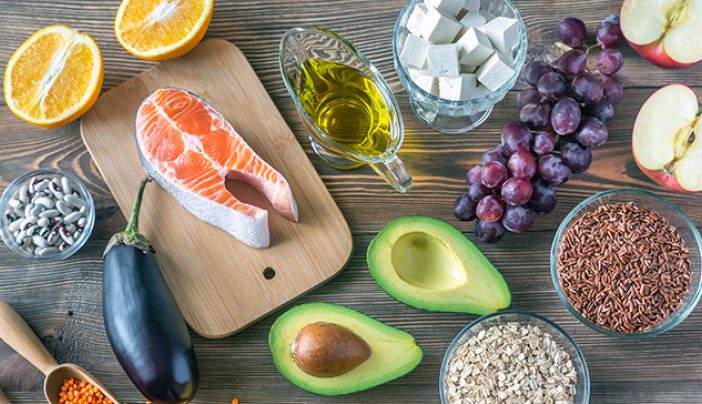
Heart-Healthy Diets: Nourishing Your Body for Optimal Cardiovascular Health
Heart disease is a significant health concern that affects millions of people worldwide. Fortunately, simple dietary changes can help reduce heart disease risk and improve cardiovascular health. This article will explore the concept of heart-healthy diets and provide examples of the best foods to eat for optimal cardiovascular health.
What is a Heart-Healthy Diet?
A heart-healthy diet is a way of eating that emphasises foods shown to promote heart health and reduce the risk of heart disease. These diets typically include whole, unprocessed foods rich in nutrients and low in unhealthy fats, added sugars, and sodium. Here are some of the critical characteristics of a heart-healthy diet:
1. Rich in fruits and vegetables: Fruits and vegetables are excellent sources of vitamins, minerals, and antioxidants that help protect against heart disease. Aim for at least five servings of fruits and vegetables per day.
2. High in fibre: Fibre is essential for maintaining healthy cholesterol levels and reducing the risk of heart disease. Good sources of fibre include whole grains, fruits, vegetables, and legumes.
3. Low in unhealthy fats: Saturated and trans fats can raise cholesterol levels and increase the risk of heart disease. Limit your intake of foods high in saturated and trans fats, such as fatty meats, full-fat dairy products, and processed foods.

4. Rich in healthy fats: Healthy fats, such as monounsaturated and polyunsaturated fats, can help lower cholesterol levels and reduce the risk of heart disease. Good sources of healthy fats include nuts, seeds, fatty fish, and olive oil.

5. Low in added sugars: Added sugars can contribute to obesity, diabetes, and heart disease. Limit sugary drinks, candy, and processed foods high in added sugars.
Examples of Heart-Healthy Foods
Now that we know what a heart-healthy diet looks like let’s take a closer look at some of the best foods to eat for optimal cardiovascular health.
1. Fruits and Vegetables: Fruits and vegetables are packed with nutrients that promote heart health, including fibre, antioxidants, and potassium. Some of the best choices include:
– Berries, such as strawberries, blueberries, and raspberries
– Dark leafy greens, such as spinach, kale, and collard greens
– Cruciferous vegetables, such as broccoli, cauliflower, and Brussels sprouts
– Tomatoes, which are rich in lycopene, a powerful antioxidant
– Citrus fruits, such as oranges and grapefruits, which are high in vitamin C and flavonoids

2. Whole Grains: Whole grains are an excellent source of fibre, which helps lower cholesterol levels and reduce the risk of heart disease. Some of the best choices include:
– Oats, which are high in soluble fibre
– Quinoa, which is high in protein and fibre
– Brown rice, which is a good source of selenium and magnesium
– Whole-grain bread and pasta, which are rich in fibre and other nutrients
3. Healthy Fats: Healthy fats, such as monounsaturated and polyunsaturated fats, can help lower cholesterol levels and reduce the risk of heart disease. Some of the best sources of healthy fats include:
– Nuts, such as almonds, walnuts, and pistachios
– Seeds, such as chia seeds, flaxseeds, and pumpkin seeds
– Fatty fish, such as salmon, tuna, and mackerel
– Avocado, which is rich in monounsaturated fats
– Olive oil, which is high in heart-healthy monounsaturated fats and antioxidants

4. Lean Protein: Lean protein is essential for maintaining muscle mass and supporting overall health. Some of the best sources of lean protein include:
– Skinless chicken or turkey breast
– Fish and shellfish
– Beans and legumes, such as lentils, chickpeas, and black beans
– Tofu and other soy products
– Low-fat dairy products, such as yoghurt and cottage cheese
5. Herbs and Spices: Herbs and spices are a great way to flavour meals without adding extra calories or unhealthy fats. Some of the best choices include:

– Garlic, which has been shown to help lower blood pressure and cholesterol levels
– Turmeric, which has anti-inflammatory properties
– Cinnamon, which may help lower blood sugar levels
– Ginger, which may help lower cholesterol levels and reduce inflammation
Examples of Heart-Healthy Diets
Several diets have been shown to promote heart health and reduce the risk of heart disease. Here are three examples:
1. The Mediterranean Diet: The Mediterranean diet is a way of eating based on the Mediterranean region’s traditional foods and cooking styles. It emphasises fruits, vegetables, whole grains, lean protein, healthy fats, herbs, and spices. Research has shown that following a Mediterranean diet can help reduce the risk of heart disease, stroke, and diabetes.

2. The DASH Diet: The DASH diet (Dietary Approaches to Stop Hypertension) is a way of eating to help lower blood pressure. It emphasises fruits, vegetables, whole grains, lean protein, low-fat dairy products, and healthy fats. Research has shown that following a DASH diet can help lower blood pressure and reduce the risk of heart disease.
3. The Ornish Diet: The Ornish diet is a way of eating that is low in fat and high in fruits, vegetables, whole grains, and legumes. It also emphasises stress reduction techniques, such as meditation and yoga. Research has shown that following an Ornish diet can help reverse heart disease and improve cardiovascular health.
A heart-healthy diet emphasises whole, unprocessed foods rich in nutrients and low in unhealthy fats, added sugars, and sodium. Incorporating foods such as fruits and vegetables, whole grains, healthy fats, lean protein, and herbs and spices into your diet can help reduce the risk of heart disease and improve overall cardiovascular health. Try one of the heart-healthy diets mentioned in this essay, such as the Mediterranean, DASH, or Ornish, to optimise cardiovascular health.
Be the first to comment